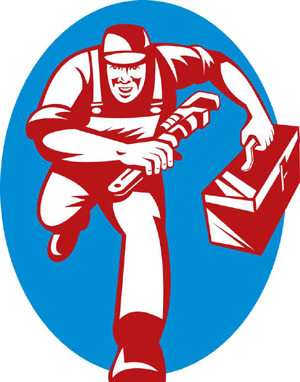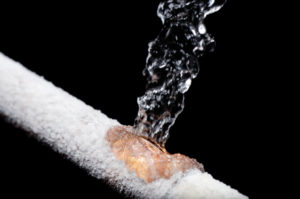
Why does a plumbing system freeze?
The reason that your plumbing system has frozen is pretty simple: there was water in the pipe when the temperature dipped below freezing. As a result, the water inside of your pipe froze and the results ended up getting pretty messy. When these pipes end up frozen they can sometimes also explode. This explosion is caused by frozen water molecules expanding in a tight space. As these molecules push outward they end up rupturing the pipe which causes a stream of water to continually flood your home. The results could end causing tens of thousands of dollars. No fun, right? So what can you do to prevent this sort of mess from ruining your home and checkbook?
How to prevent freezing pipes

Dealing with the effects of a frozen plumbing system is no fun. Frozen pipes can explode and cause a ton of damage to your home. Practicing these simple tips will help keep you from having to experience the problem firsthand.
Is the cold Salt Lake City winter making you think about the security of your plumbing system? Call Valley Plumbing today at (801) 341-4222 for top-quality frozen pipe services.

Providing Exceptional Service & Quality Workmanship, 24/7!
Book Appointment
Customer
Education
Education
No
Mess
Mess
Experienced
Plumbing Team
Plumbing Team
Hassle-Free Experience
Your experience matters. We make every effort to provide you with a pleasant, hassle-free experience that will leave you with the peace of mind you deserve.
Superior Customer Service
Our team not only possesses the technical skills to get the job done, but they are also passionate about providing the best customer service possible to every client.
Competitive, Honest Pricing
Not only do we strive to provide fast and reliable service, we do it at a fair, competitive price. You will always receive a free onsite estimate before we go ahead with any project.
24/7 Live Answer
You can count on Valley Plumbing and Drain Cleaning to ease the burden of plumbing and drain emergencies. Rest easy knowing you have a trusted 24-hour emergency plumber nearby to help!
